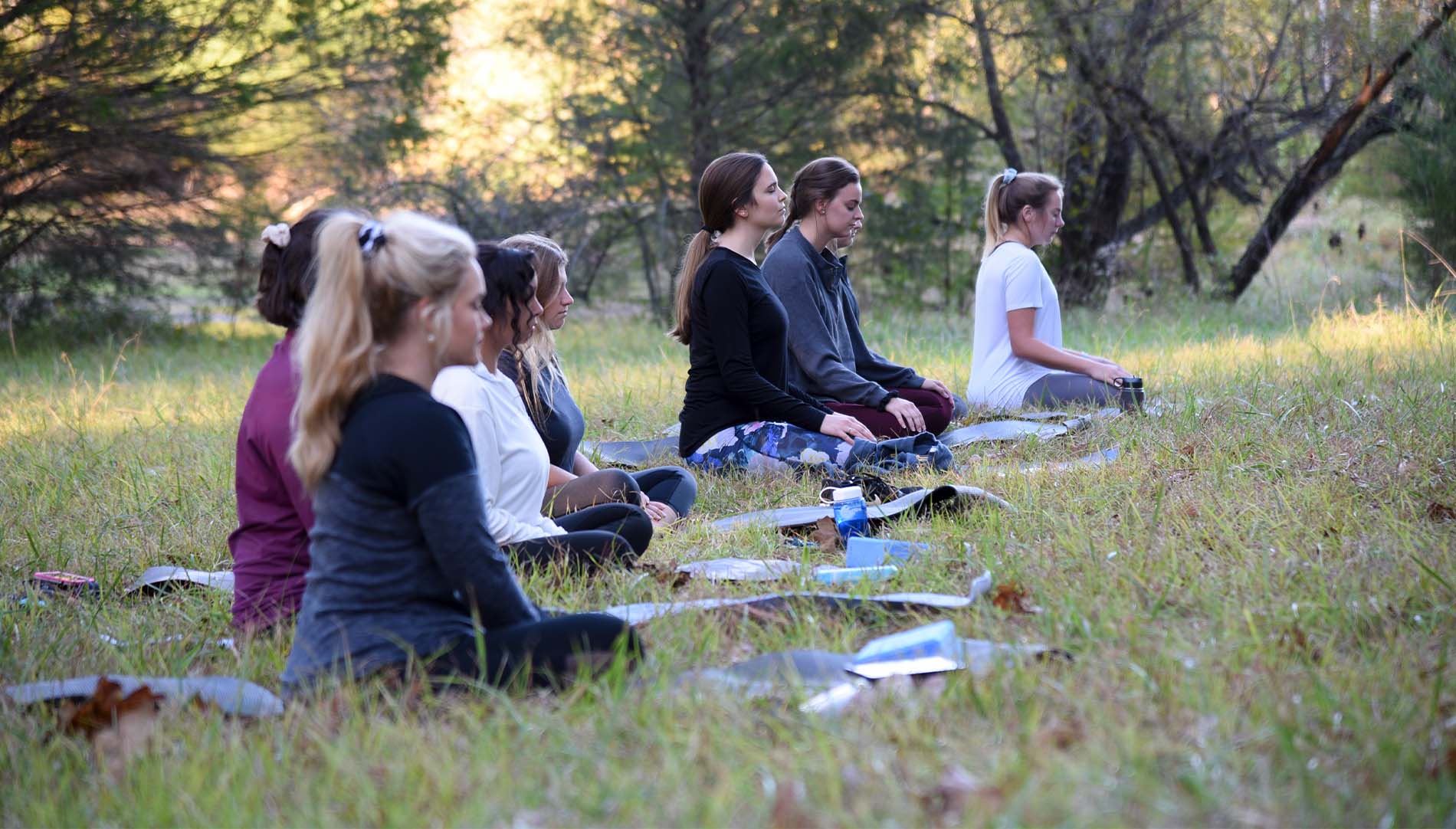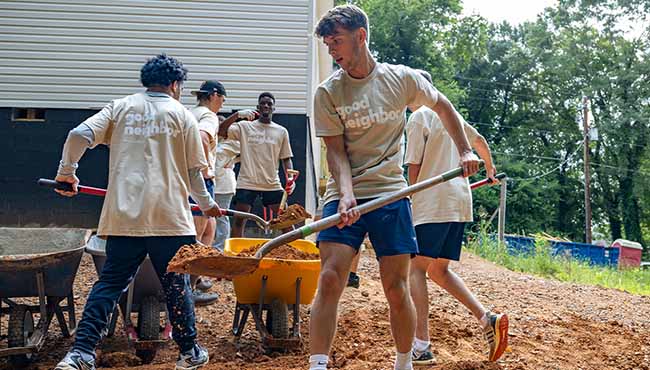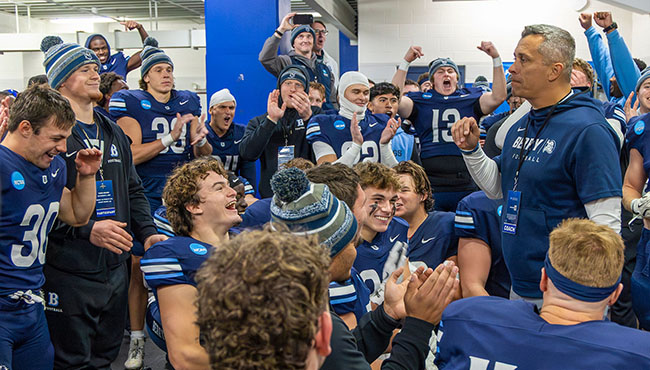When the end of the semester nears, college campuses are filled with stress as students tackle final projects and prepare for exams. For some, the holiday break also creates anxiety as students navigate changing relationships with parents or general family circumstances and conflicts. This November, in preparation for Thanksgiving, boost your mental and physical health by making gratitude practices a part of your college experience.
Gratitude: What it is and why it’s important
The Journal of Positive Psychology defines gratitude in two ways: as a state and as a trait. Being in a state of gratitude is feeling appreciative because you realize that good things in your life come from others or from outside yourself. This emotional state often encourages people to give back and behave in ways that benefit others in response to their feelings. On the other hand, having the gratitude trait is when you practice noticing and appreciating the good things in your life and the people around you on a regular basis.
In both instances, people with attitudes of gratitude are more likely to show positive social behaviors, which many scientists believe is the reason practicing gratitude is linked to better physical and mental health.
Gen Z in College
It’s well-known that many college-age young adults today are facing mental-health challenges. Books like The Anxious Generation have highlighted all that they are dealing with, resonating with many and topping The New York Times Bestsellers List for weeks. But there is hope, according to the Healthy Minds Network, a research organization studying college mental health. Over the past year, researchers have seen a decrease in college students’ anxiety, depression and thoughts of suicide.
Still mental health challenges in this age group are more prevalent than in previous decades. Counseling centers, both on and off campuses, are often understaffed and overwhelmed, according to the National Education Association.
In an effort to bolster mental health and continue this positive mental health trend, higher education professionals are encouraging young adults to learn about the benefits of gratitude and how practicing it can help manage stress and promote healing during the most anxiety-producing seasons of college.
Gratitude as Self-Care
No mental health professional would argue that having an attitude of gratitude is a magic fix for those struggling with anxiety or depression. But according to research, practicing gratitude can actually change what’s happening in your brain.
Associate Professor of the Department of Psychological Sciences Susan Conradsen says, "From a neuropsychology perspective, we say what fires together wires together. If you are consistently fostering an attitude or perspective of gratitude, then those practices will actually start to rewire your neurons, and it becomes more intuitively how you think. We often talk about the importance of thought patterns because we know that what we think about influences how we feel. It sounds basic, but if you are engaging in intentional, genuinely appreciative thoughts, then your feelings will begin to match your thought processes.”
This type of gratitude rewriting has been found to have an impact on a variety of different well-being metrics, especially in college students, including better overall mental health, better sleep, better conflict-resolution skills, stronger resilience, and more positive student learning outcomes, just to name a few.
Finding the Right Practice
A key to rewiring your thought processes is consistency. Finding the right gratitude practice for you is an important step. Several effective gratitude practices have been repeatedly studied in young adults.
Writing Letters
In one study, 293 adults seeking university-based psychotherapy services were broken into three groups: a control group, a group writing letters expressing gratitude and a group writing to express their personal feelings. Each was also attending regular in-person therapy. At four weeks and 12 weeks, participants in the gratitude writing group reported significantly better mental health outcomes compared to those expressing their personal feelings and the control group.
Writing a thank-you note, whether physical or digital, might be a great place to start. Having someone to specifically thank can help make gratitude thoughts more tangible. When using this method, some people set goals for writing a certain number of letters each week or tying letter-writing to certain events throughout the year to make the practice consistent.
Journaling Gratitude
Another study points to the benefits of journaling as a way to practice gratitude. In this study, students from different faith traditions each participated in weekly gratitude journal entries. Researchers saw an impact on overall student well-being as well as shifts in perspective on conflicts with peers.
For many students of faith traditions, adding gratitude practices into weekly spiritual practices can be an easy way to add on a new habit. Even without a faith tradition, students can still choose a specific day or time to reflect on the parts of their lives that bring them joy through written reflection.
Finding Community
The same study also highlighted the importance of forming a habit in community. Having a community of people committed to similar habits can be a major motivator when it comes to being consistent. If you are not practicing gratitude as part of a community or counseling, find people to hold you accountable. Do some research and identify places or groups on your campus or in your college culture that hold gratitude events near Thanksgiving or incorporate opportunities for reflection into programming.
For example, at Berry College, the Signature Experience Seminar is a one-credit course where students evaluate, connect and articulate their learning from a high-impact learning experience as part of a cohort, with guidance from a mentor. Having taught this class, Dr. Conradsen explained that articulation or reflection naturally lends itself to gratitude practice. As students write about their experiences, they quickly identify many things to be grateful for during their college career, and then during discussions with one another, they often find even more.
Setting Reminders
How easy is this idea? One study merely sent students gratitude reminders and saw a positive impact on resilience and student learning. Could you set phone alarms, calendar reminders or add gratitude to your to-do list? Or what weekly notifications do you already receive that might prompt gratitude? There are also many free apps available to help people add gratitude to daily life.
Dr. Conradsen explains, “Anytime you engage in reflection, it helps to solidify confidence but also slows you down. There’s so much value in carving out time to see goodness, growth and learning, and this habit does the rewiring. Practicing reflection, especially related to gratitude, teaches an ability to find, verbalize and articulate what is good, and the act of naming it is powerful.”
Thanking yourself
Dr. Conradsen also emphasized the importance of gratitude towards yourself as young adults:
“There are a lot of practices out there that focus gratitude toward something — someone or towards a spiritual being — but it is also vital that young adults learn how to extend some of that gratitude, or even grace, toward themselves, their bodies and their minds. Be intentionally less critical of yourselves. Rather than wrapping your whole being up in a 4.0 GPA, I encourage you to cultivate an awareness of academic strengths, time-management strengths and social skills; create a practice of recognizing the things you are doing well.”
This year, as you navigate the stress of end-of-semester projects and holiday anxieties, embrace gratitude as a way to boost well-being. By consistently focusing on what you’re thankful for, you can move from stress into resilience and turn challenges into opportunities for growth.



